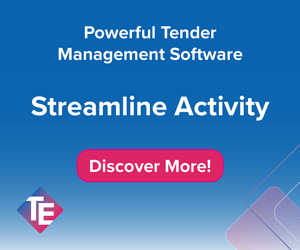Learning to be an effective proposal manager takes years of practice. When you are leading this essential function, you must be able to balance a number of skills, coordinate a team of people you don’t typically manage, and manage a project that often few want to work on. When it comes to being a successful proposal manager, it is as much about character as it is about skill.
When you pitch in, the team will trust your leadership and respond better to challenges.
The following are five universal character traits for being an effective proposal manager:
- Be genuine and selfless. The team relies on the account executive for strategy, but it looks to you, as the proposal manager, for leadership and advice on how to write and review the proposal. Take time to listen and understand. The trust you build will embolden your team and ultimately lead to better solutions. Enthusiastically shepherd the team through the process. Proposal writing can be hard, so be clear but show tact. Thoughtful communication builds credibility and makes the best people want to work with you.
- Show, don’t tell. You may not manage the people who work on your proposal, but it’s your job to lead them. Unite the team by showing them what commitment and accountability look like. Don’t tell them the tasks; show them how each task depends on another and how delays impact milestones. People are more likely to step up when they understand where their piece of the puzzle fits. Don’t just manage the process; be part of the effort. Take a crack at the executive summary or compliance matrix. When you pitch in, the team will trust your leadership and respond better to challenges.
- Know that knowledge is value. You stand at the intersection of people and information—share generously to help the team accomplish its tasks. People will look to you to be the process expert—be exactly that. Use your experience: Analyze the RFP for similarities with past proposals and identify where the team struggled. Pull together reusable content and include it with assignments. People write better and faster when they have something to work from—there are few things more frustrating than staring at a blank page. Attend training and research the client. The more you know, the more value you add to every conversation.
- Be creative and be innovative. Sometimes winning means taking a step back and looking at things differently—taking initiative. Ask the team how it could do a proposal task differently, and the discussion may lead to a more compelling way of doing the same old thing. Look for long, complex blocks of text. Could a graphic better compel the evaluator to read on? Mock up a draft for the team. Creativity takes courage. Stay positive and remember that creativity is where innovation comes from.
- Work hard, play hard. Whether it’s a six-week or a six-month turnaround, the team is more productive when you manage its time wisely. Exhausted teams cannot write winning proposals or build standout solutions. Analyze the labor required for each task and build a schedule that helps your team members balance full-time commitments with proposal responsibilities. Get value-added feedback and avoid comments like “needs more detail” by giving review teams ample time to read and think. Distribute review copies in smaller chunks at the end of the day. Flexibility helps, so let reviewers decide if they want to stay late or start early. Never forget that people need rest. Be sure to take time to restore your energy as well so you can be there for the team.
Sometimes winning means taking a step back and looking at things differently—taking initiative.
Find your own style but also recognize your strengths and weaknesses. Understanding where you need to grow will help you nurture your team and build better proposals.
Cheryl Smith is the marketing lead for Privia, a Washington, D.C.-based capture and proposal management software and service company. She can be reached at csmith@privia.com.



Join the Conversation